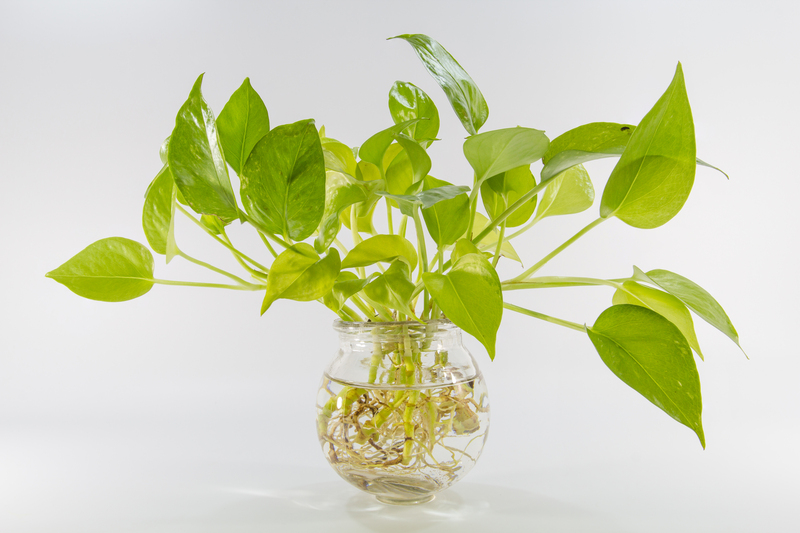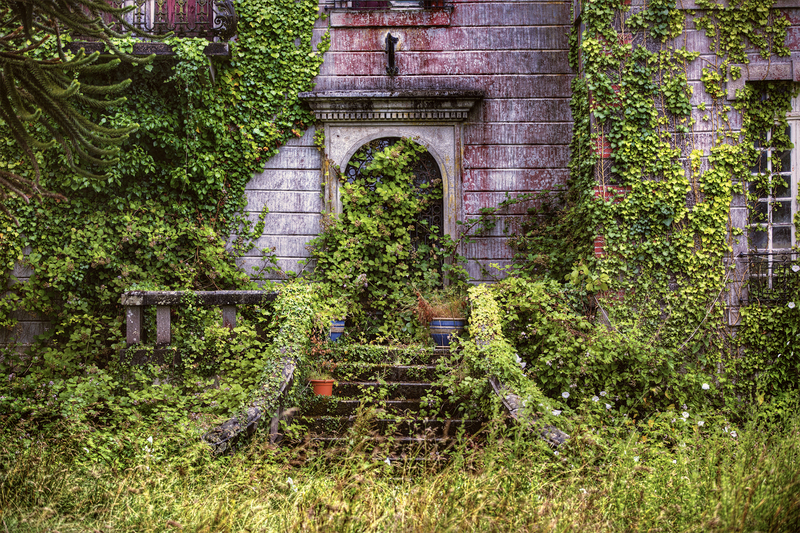Evergreen Climbers: Revamping Shaded Hideaways
Posted on 21/08/2025
Evergreen Climbers: Revamping Shaded Hideaways
Transforming shaded hideaways into lush, vibrant spaces can be a challenging endeavor. However, with the introduction of evergreen climbers, these spaces can be revitalized and turned into eye-catching oases. Not only do these climbers provide constant greenery, but they also offer a refreshing aesthetic throughout the year. In this article, we will delve into the various types of evergreen climbers, their benefits, and how you can effectively integrate them into your shaded gardens.

Why Choose Evergreen Climbers?
Evergreen climbers are versatile plants that bring numerous advantages to shaded gardens:
- Year-Round Greenery: Unlike deciduous plants, evergreen climbers do not shed their leaves during colder months. This means they provide greenery all year, making your garden inviting even in winter.
- Low Maintenance: These climbers typically require less maintenance compared to other plant types, particularly in terms of leaf cleanup and seasonal planting.
- Enhanced Privacy: Evergreen climbers create natural screens, enhancing privacy and secluding hideaways, perfect for relaxation and reflection.
- Eco-Friendly Benefits: Plants play a significant role in improving air quality by filtering pollutants and producing oxygen. Having lush greenery outside your home contributes positively to the local ecosystem.
Top Evergreen Climbers for Shaded Areas
1. English Ivy (Hedera helix)
The classic English Ivy is a popular choice for shaded areas due to its robust growth and adaptability. Its glossy leaves can cover large areas, making it an excellent choice for walls or fences. English Ivy is also known for its ability to thrive in less fertile soils, requiring minimal intervention.
2. Climbing Hydrangea (Hydrangea anomala subsp. petiolaris)
Known for its unique beauty, the Climbing Hydrangea is a favorite among gardeners. It produces elegant white flowers and dark green foliage that remain evergreen in milder climates. It's perfect for north-facing walls or shaded corners, adding a touch of sophistication to any garden space.
3. Star Jasmine (Trachelospermum jasminoides)
The Star Jasmine is beloved for its fragrant, star-shaped white flowers and lush foliage. This climber is particularly versatile and can cover fences, trellises, and walls effectively. Despite requiring some support to climb, its sweet perfume and year-round greenery make it a worthwhile addition to any shaded area.
4. Evergreen Clematis (Clematis armandii)
The Evergreen Clematis is appreciated for its larger-than-life blooms and is one of the few clematis varieties that remain green throughout the winter. Its aromatic white flowers during spring attract bees and butterflies, making it an excellent choice for those looking to support local wildlife.
5. Japanese Honeysuckle (Lonicera japonica)
Renowned for its sweetly fragrant flowers, the Japanese Honeysuckle is a resilient climber for shaded hideaways. It grows quickly, offering privacy and a nectar source for pollinators. However, due to its vigorous growth, regular pruning is essential to keep it under control.
How to Integrate Evergreen Climbers in Your Garden
Successfully incorporating evergreen climbers in shaded gardens involves a few strategic steps:
Understanding the Environment
Before planting, analyze the shade levels in your garden. This might include identifying areas with dappled shade from tree canopies or complete shade from structures. Understanding the microclimate of your garden will help in selecting a suitable climber.
Soil Preparation
The health of your soil significantly influences the growth of your climbers. Ensure the soil is well-draining and enriched with organic matter if necessary. While many evergreen climbers are tolerant of poor soil conditions, a nutrient-rich base supports robust growth.
Providing Support
Most evergreen climbers require some form of support as they grow. This might involve using trellises, garden arches, or fixing wire onto walls. Ensure that your support structure is strong and capable of bearing the eventual weight of the maturing climber.
Regular Maintenance
Although evergreen climbers are low-maintenance, they do require occasional trimming and pruning to prevent overgrowth and to enhance vigor. Remove any dead or diseased growth to promote healthy foliage.

Caring for Evergreen Climbers
Basic care practices are essential for thriving evergreen climbers:
- Watering: While being drought-tolerant, ensure sufficient watering during prolonged dry spells.
- Fertilizing: Use a balanced fertilizer during the growing season to encourage lush growth.
- Pest Management: Keep an eye on common pests such as aphids and spider mites, employing organic pest control methods when necessary.
Conclusion
Revamping shaded hideaways with evergreen climbers is both rewarding and transformative. They not only enhance the aesthetics and privacy of garden spaces but also contribute to the ecosystem, offering year-round beauty and benefits. By understanding the specific needs and characteristics of these climbers, you can create a shaded retreat that remains consistently vibrant. Transform your garden into a captivating haven today with the help of these resilient and beautiful plants.
Latest Posts
Raise the Bar with Stellar Orchid Care Techniques
Weed Control Mastery in 3 Essential Moves
Adapting Your Garden to Strong Wind Challenges

